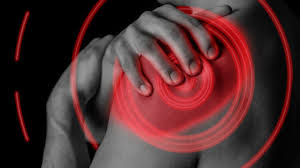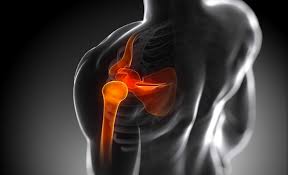Most problems in the shoulder involve the muscles, ligaments, and tendons, rather than the bones. Athletes are especially susceptible to shoulder problems. In athletes, shoulder problems can develop slowly through repetitive, intensive training routines.
Some people will have a tendency to ignore the pain and "play through" a shoulder injury, which only aggravates the condition, and may possibly cause more problems. People also may underestimate the extent of their injury because steady pain, weakness in the arm, or limitation of joint motion will become almost second nature to them.
Conditions that can cause shoulder pain include:
Frozen shoulder
Rotator cuff disorders
Impingement syndrome
Shoulder instability
Acromioclavicular joint disorders
A broken arm or broken collarbone
Your physiotherapist may be able to diagnose the cause of your shoulder pain by discussing your symptoms with you and examining your shoulder. In some cases, tests may be needed. Your physiotherapist will also need to know whether:
- You have had any recent injuries
- Anything makes the pain feel better or worse
- The pain is worse at night
- The pain came on gradually or suddenly
- The pain is affecting your everyday life – for example, at work or when exercising
- You have any other symptoms
The main treatment options for shoulder pain include:
Avoiding activities that make your symptoms worse
Using ice packs
Painkillers
Anti-inflammatories
Physiotherapy
Arthrographic distension (hydrodilatation)
Surgery (in some cases)
Physiotherapy treatment may consist of mobilisation, soft tissue therapy, ultrasound, hot and cold therapy and exercises.


